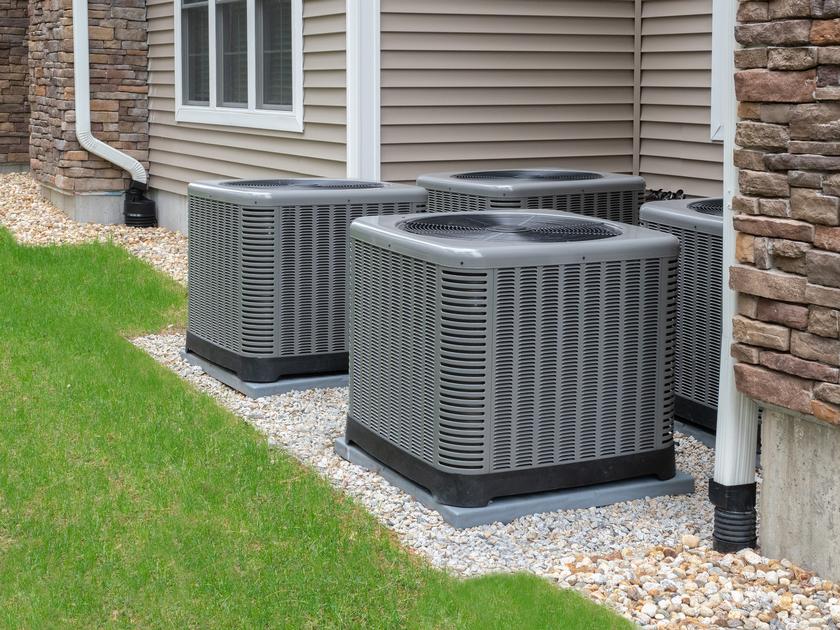- Categories :
- More
What to Know About the 2025 HVAC System Refrigerant Mandate

Significant changes are coming to the HVAC industry with the new EPA refrigerant regulations in 2025.
As part of a global agreement to reduce greenhouse gases, the US Environmental Protection Agency (EPA) was given authority to regulate the type of refrigerants that can be used. The current refrigerant R-410A was found to contribute to global warming and the EPA has mandated that all residential HVAC equipment manufacturers must switch refrigerants to R-454B and R-32 by January 1, 2025.
These regulations aim to reduce the environmental impact of refrigerants used in heating, ventilation, and air conditioning (HVAC) systems. Understanding these changes is crucial for homeowners, businesses, and HVAC professionals to ensure compliance and adapt to the evolving industry standards.
Understanding The New Refrigerant Regulations
The new rules, effective January 1, 2025, will mandate the phase-out of certain high-GWP (Global Warming Potential) refrigerants and promote the use of more environmentally friendly alternatives.
Why is this happening? This is designed to slow climate change by using refrigerants that have lower global warning potential (GWP). This mandate will impact the HVAC industry and their customers.
Phase-Out Schedule for High-GWP Refrigerants
The new regulations introduce a phased approach to phasing out refrigerants with high GWP. This schedule is designed to ensure a smooth transition for HVAC industry companies and manufacturers, while minimizing disruption for users.
Key milestones include:
- 2025: Complete phase-out of refrigerants with a GWP of 2,200 or higher.
- 2028: Further restrictions on refrigerants with a GWP exceeding 1,500.
- 2030: Transition to refrigerants with a GWP of 750 or lower.
Approved Refrigerant Alternatives
To comply with the new regulations, HVAC systems will need to transition to refrigerants with lower GWP.
The EPA has approved several alternatives, including:
- Hydrofluoroolefins (HFOs): These are low-GWP refrigerants that offer excellent performance while reducing environmental impact.
- Natural Refrigerants: Substances like carbon dioxide (CO2), ammonia, and hydrocarbons are increasingly being used as they have minimal environmental impact.
- Hydrochlorofluorocarbons (HCFCs): Although still in use, HCFCs are being gradually phased out in favor of more sustainable options.
Overall Positive Impacts
- Environmentally improved refrigerants
- Improved heating and cooling system energy efficiency
Implications for HVAC System Owners
1. Cost Implications
The transition to new refrigerants may lead to initial cost increases due to the need for system modifications or replacements. However, these costs should be weighed against the long-term benefits of reduced environmental impact and potential energy savings.
- Up to 30% increased cost of refrigerant and new HVAC equipment
2. System Compatibility
Existing HVAC systems that use high-GWP refrigerants may require retrofitting to accommodate new refrigerants.
This could involve:
- System Upgrades: Components such as compressors, evaporators, and condensers might need to be replaced or adjusted.
- Refrigerant Replacement: Proper disposal of old refrigerants and introduction of approved alternatives.
3. Regulatory Compliance
Adhering to the new regulations is essential to avoid potential fines and legal issues. HVAC professionals will need to stay informed about the regulations and ensure that their systems and practices align with the EPA’s requirements.
Steps to Prepare for the 2025 Regulations
1. Conduct an Assessment
Homeowners and businesses should start by assessing their current HVAC systems. Determine which refrigerants are used and evaluate the potential need for upgrades or replacements.
2. Consult with HVAC Professionals
Engaging with certified HVAC professionals is crucial.
They can provide guidance on:
- System Evaluation: Assessing the compatibility of existing systems with new refrigerants.
- Compliance Strategies: Developing a plan to meet the new regulations while minimizing disruptions.
3. Plan for System Upgrades
If system upgrades or replacements are necessary, plan and budget accordingly.
Consider:
- Cost-Benefit Analysis: Weigh the costs of upgrading against the long-term savings and environmental benefits.
- Energy Efficiency: New refrigerants and systems might offer improved energy efficiency, contributing to reduced operational costs.
4. Stay Informed
Keep up-to-date with the latest information from the EPA and industry organizations. Attend workshops, webinars, and training sessions to stay informed about the regulatory changes and best practices for compliance.
The upcoming EPA HVAC refrigerant regulations for 2025 represent a significant shift towards more sustainable practices in the HVAC industry. By understanding the changes, preparing for system updates, and ensuring compliance, you can contribute to a healthier environment and benefit from improved system efficiency.
How Can Bradbury Brothers Help?
We care about keeping our customers informed of changes in the HVAC industry. That includes how these changes can impact finding systems that comply with this new mandate before prices go up on new systems and repair options for existing systems.
Starting January 1, 2025, all newly manufactured residential and light commercial air conditioners and heat pumps must use the latest refrigerant, setting a new standard for efficiency and environmental responsibility.
Considering a New HVAC Installation?
Our goal at Bradbury Brothers is to provide clear information for you to make the best decision to save your hard-earned dollars. If you are considering purchasing a new system in the near future due to the age of your existing system, do so now and beat the price increases that will begin on January 1, 2025.
Reach out to Brabury Brothers today for a complimentary assessment of your HVAC refrigerant system. Call us at [phone_link] or connect with us online to ensure your system runs efficiently and effectively. Don’t wait—let’s optimize your comfort now!













